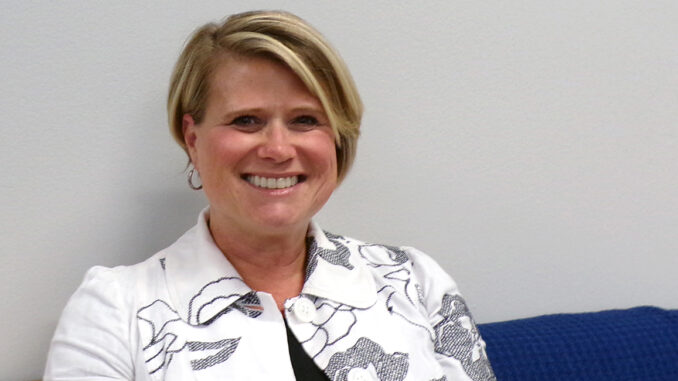
This is the first installment in a two-part series on the tenure of outgoing State Superintendent Catherine Truitt. Part 2 can be read here.
RALEIGH — North Carolina State Superintendent Catherine Truitt has two pieces of advice for whomever her successor may be.
“First of all, this job is not about governing, it’s about leading. You don’t govern North Carolina Public Schools; you lead North Carolina Public Schools,” Truitt said.
“And second, I would say that the bases of both parties have turned education into a wedge issue and that this position does have the ability to chip away at that wedge, but only if they move to the center on many issues that impact students. In other words, you’re representing all people, not just the people in your base.”
Truitt, elected during the 2020 pandemic election cycle, lost March’s Republican primary to Michele Morrow.
Morrow — who has faced criticism for negative comments about public schools as well as her remarks and participation in events during the Jan. 6, 2021, uprising at the U.S. Capitol — will face Democrat Maurice “Mo” Green, a past superintendent of Guilford County Public Schools who spent the better part of the last decade running the Z. Smith Reynolds Foundation, a leading financial supporter of left and progressive groups in the state.
“People,” Truitt said, “always need to be looking closer at all Council of State races, not just this race.”
And not just the races. Truitt added that the job of the state superintendent is often overlooked — if known at all.
“I can tell you with 100% certainty, doing this job for almost four years, that most people don’t know we have a state superintendent of public instruction, let alone that this person was elected,” said Truitt.
“I think people who try to do hard things and tackle big hairy goals always have to remind themselves that you can only save the world in regard to your piece of the pie, and my piece of the pie is education.”
She cited poverty, food scarcity and health care as issues that “always come back to education,” which she says “still has the power to lift people out of poverty.”
Truitt said her first days in office in January 2021, faced with shuttered schools during the COVID-19 pandemic, made her think “this was untenable.”
“And that the cure was all of a sudden worse than the disease,” added Truitt, “and that there had not really been any conversation” about reopening schools.
She said she reached out to the North Carolina Department of Health and Human Service (DHS), which had been “very communicative with us and the state board throughout the pandemic.”
“But again, no sense of urgency or plan for how to reopen schools,” Truitt said discussions with the state board of education and the governor’s office.
“Did we move as fast as I would have liked? No,” said Truitt, who said talks were fruitless and “that eventually culminated in the legislature having to say, ‘Thou shalt open schools to everyone.’”
Despite the pandemic impact, Truitt said none of her plans were upended.
“My primary goal was to establish a certain kind of leadership team that would get Science of Reading legislation over the finish line and that would reopen schools,” said Truitt.
She said she knew federal COVID relief dollars would need to be addressed.
“That money came to us, I want to say, in February of 2021,” said Truitt. “And it another $3.5 billion, 90% of which would be going to districts.”
Truitt set up the Office of Learning Recovery (OLR) to get a handle on the deluge of federal COVID funds and how to help districts use those funds based on their district-specific needs, though she said the levels of astuteness in the use of those funds “depends on the district, it’s different district by district.”
“That was the first of its kind in the nation where we actually provided local superintendents with data on where their students were, down to the students who had suffered the most academically during the pandemic,” Truitt said of the OLR.
The data included “vetted resources” that matched up with the needs of students in the district. Under Truitt, the OLR was recognized nationally, including praise from a U.S. House committee, for its approach in encouraging spending relief funds.
While waiting for the most recent numbers to be finalized, Truitt said the state has “certainly seen two consecutive years of post-pandemic academic recovery; probably three.”



